How do you keep a community together and solid during a strict government lockdown?
As unemployment spirals across Myanmar despite ambitious government-led initiatives, ACTED is helping those working in the struggling garment sector by putting their skills to use in boosting the production of Personal Protective Equipment (PPE).
For this photo story, ACTED met with workers across the Hlaing Thar Yar/Htan Ta Pin Townships, the manufacturing hubs of Myanmar's capital, to see how our recent project is helping them revitalize their industry and contribute to the fight against Covid.
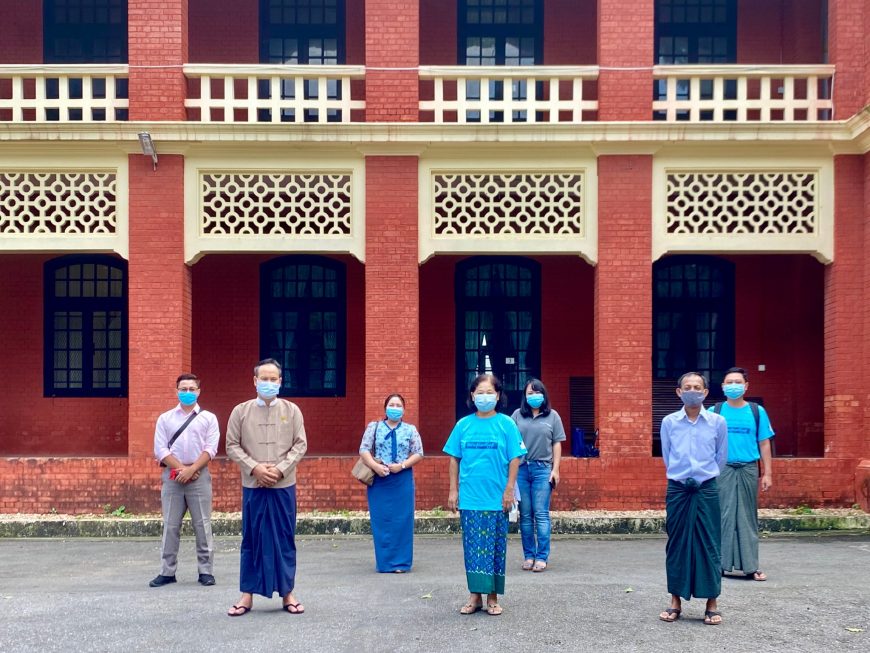
As a first step, the staff member of Department of Technical Vocational Education and Training helped ACTED identify at risk populations who would be most in need of Personal Protective Equipement (PPE).
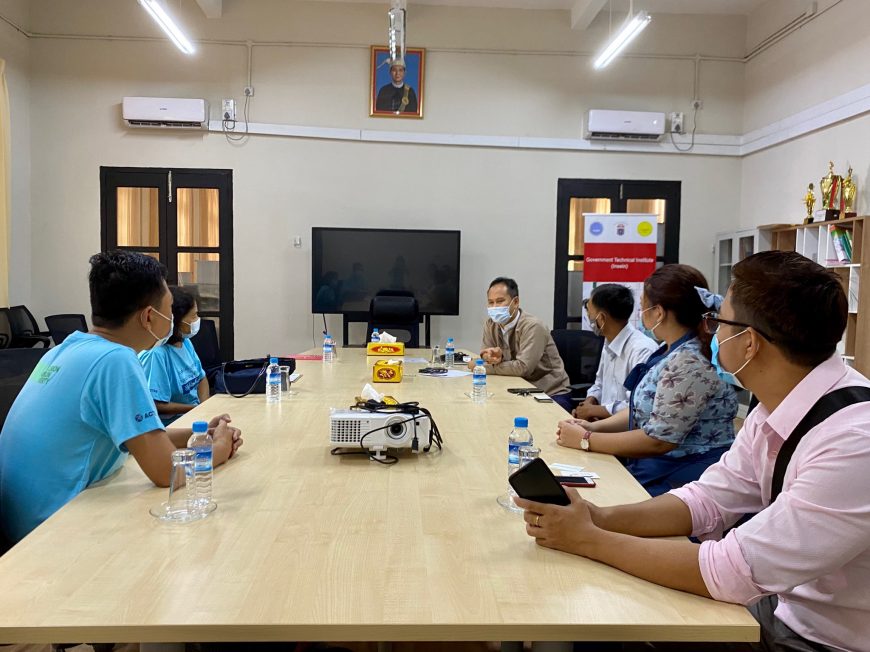
Garment workers in Hlaing Thar Yar and Htan Ta Pin Township faced widespread lay offs as the pandemic forced the closure of their factories. Here ACTED works with the Government Technical Institute Insein to determine a list of priority beneficiaries.
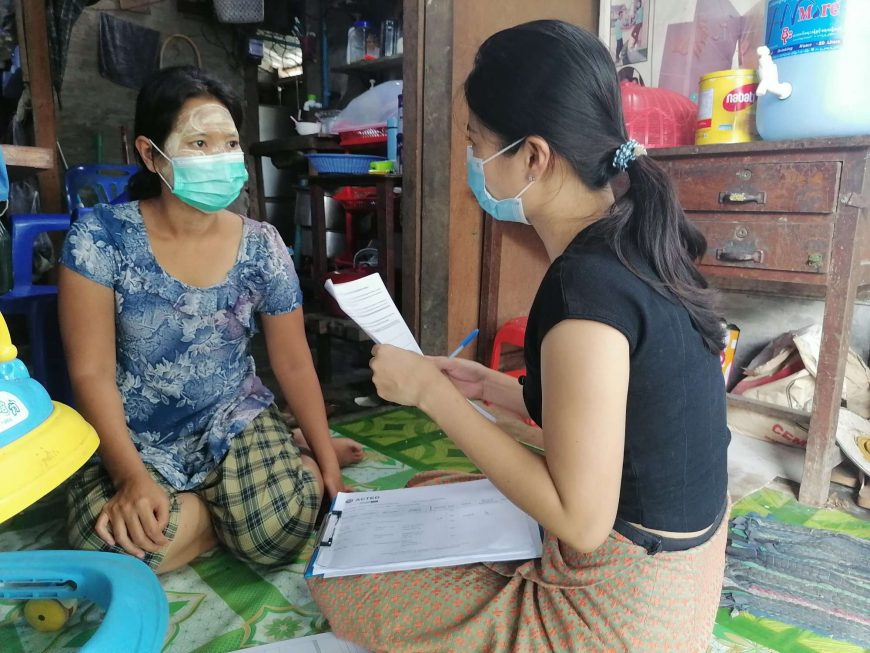
The next step was for ACTED staff to interview local tailors and garment manufacturers to assess their needs, select candidates and then supply them with the relevant tools and trainings to allow them to begin PPE production.
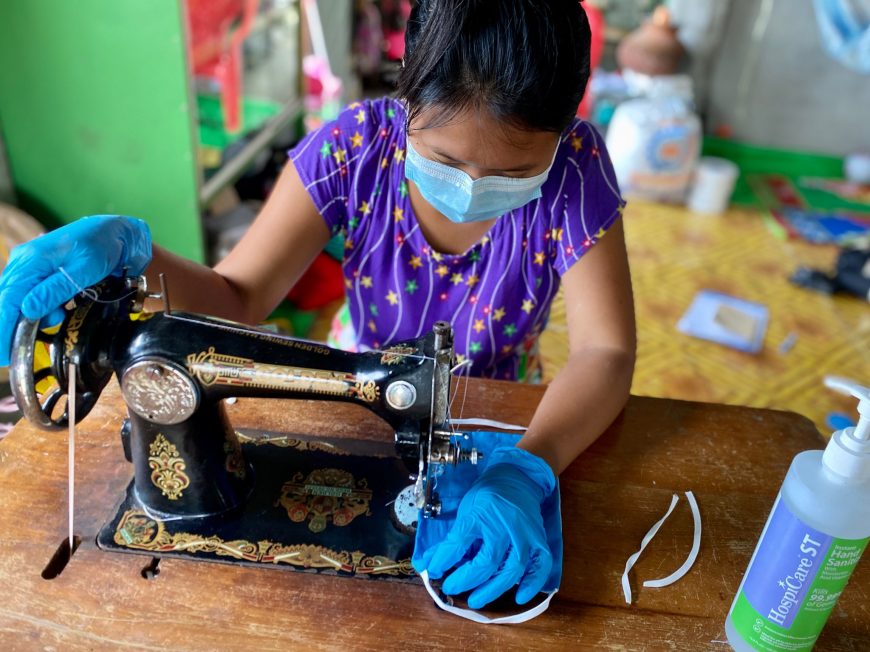
A local tailor utilizing her skills to make cloth masks.
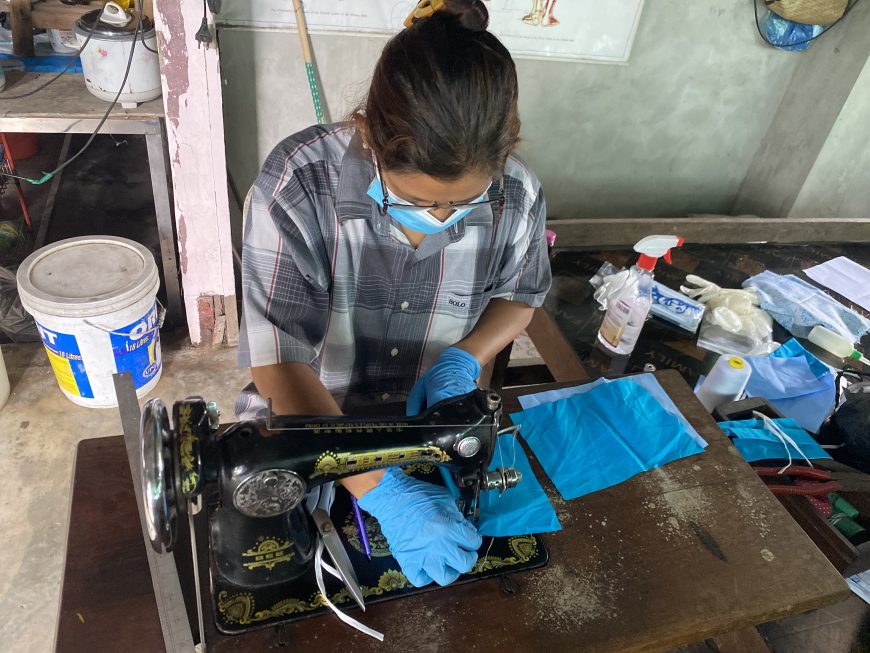
ACTED identified 11 female tailors in total. They were responsible for tailoring cloth masks and packing them for distribution.
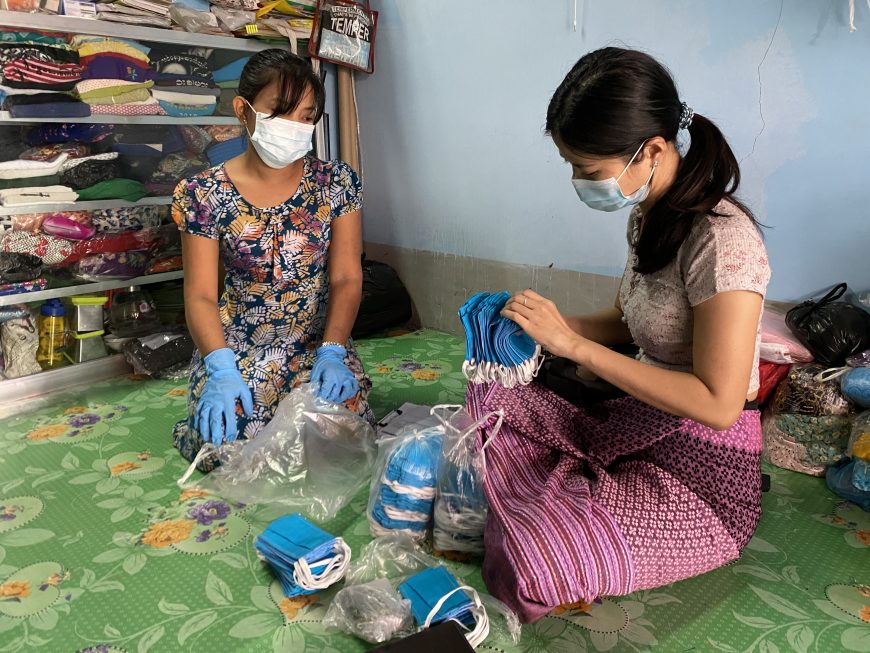
The tailors count the number of protective masks produced and ready them for distribution.
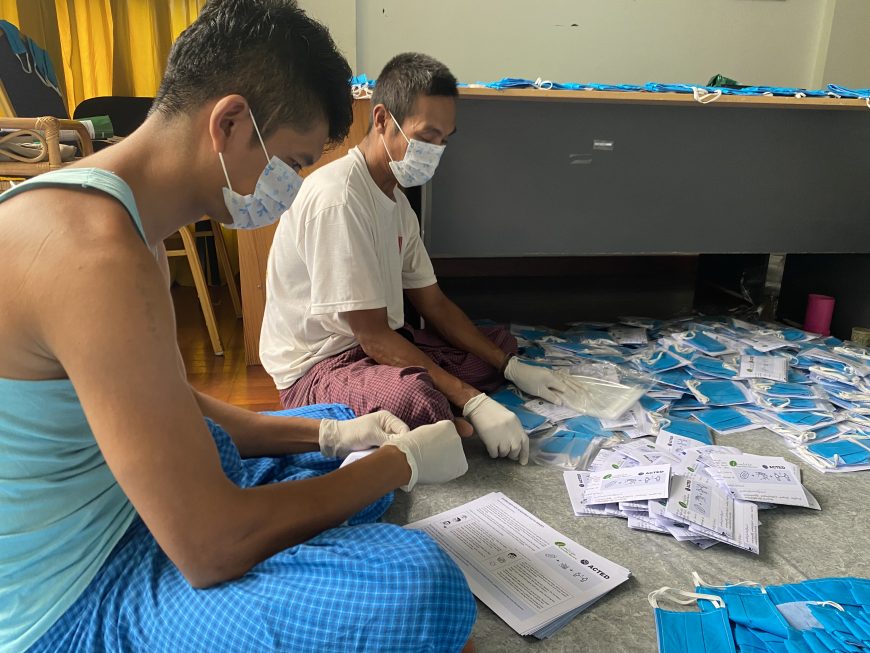
ACTED team members are checking the quality of the final product, counting numbers of masks and packing them for each batch in distribution.
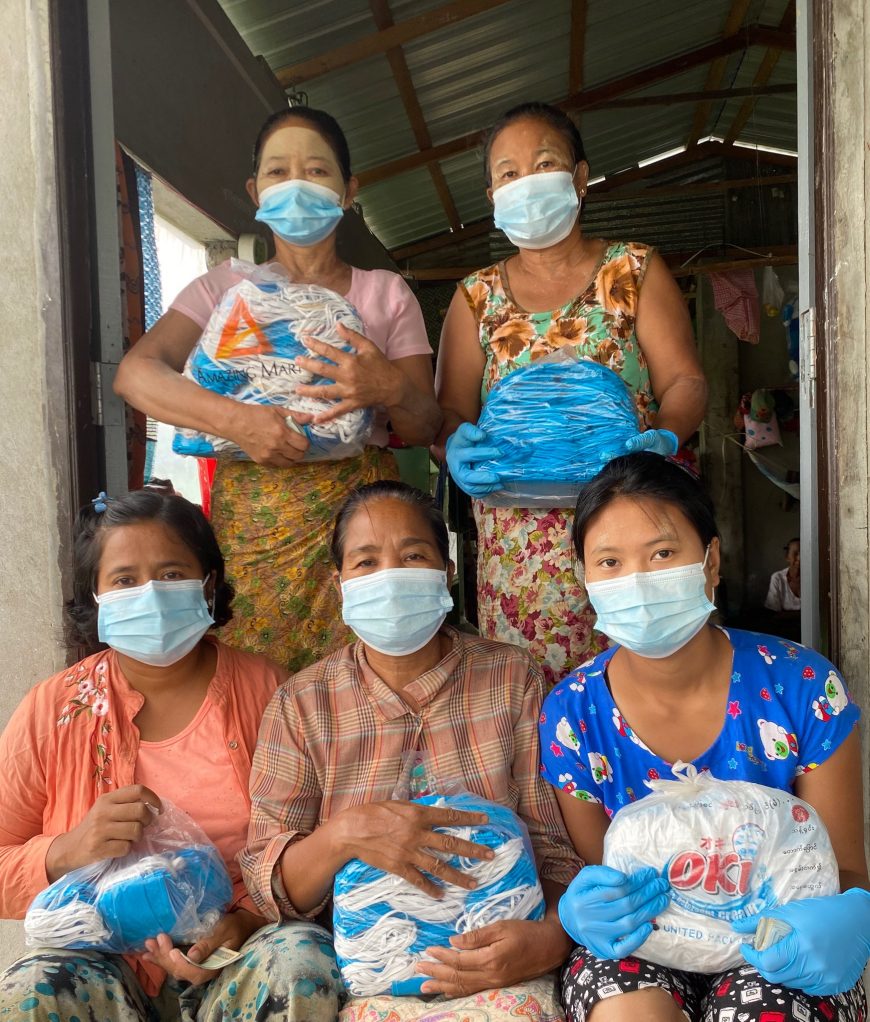
Their work paid off. The tailors were able to sell the PPE and in doing so earn an income sufficient to cover their families’ dailt expenses for over four months.
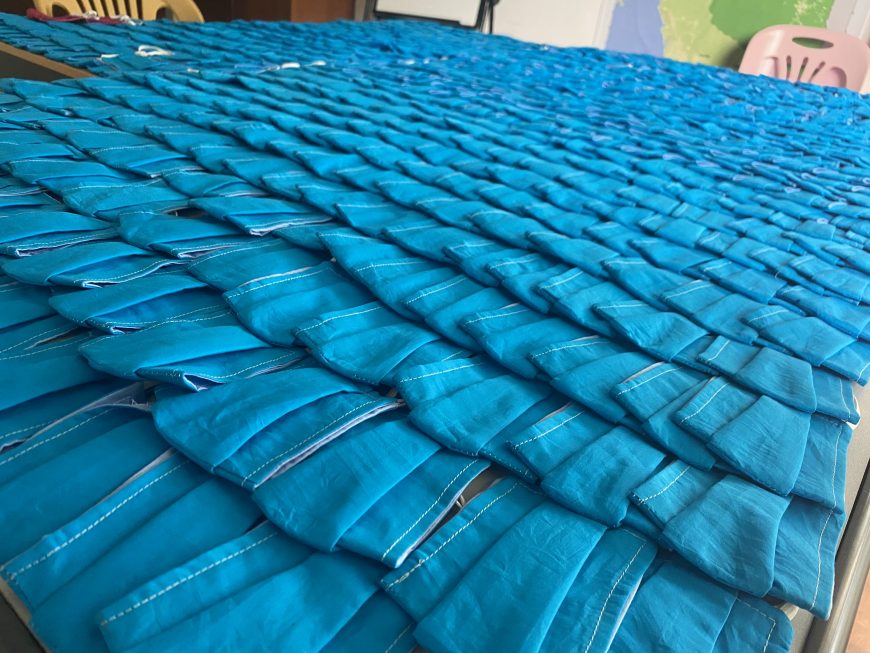
The 11 female tailors produced 10,155 cloth masks which were then distributed to 5,078 recipients in total, with 2,450 women and 2,628 men.
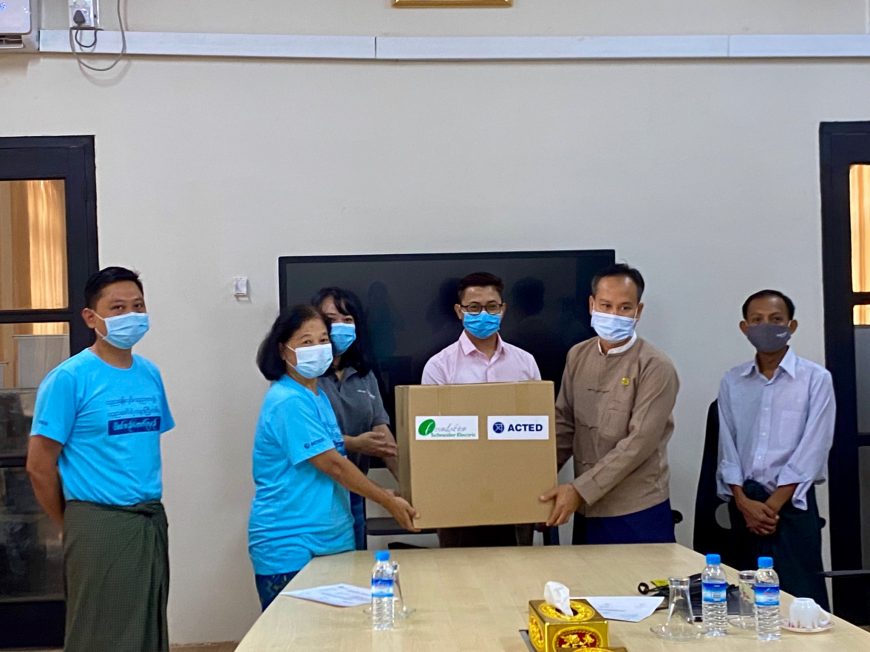
ACTED donated 4,000 masks to the Department of Technical and Vocational Education and Training for further distribution to students and teachers to ensure their safety and continued learning opportunities.
This project is funded by Schneider Electric.
